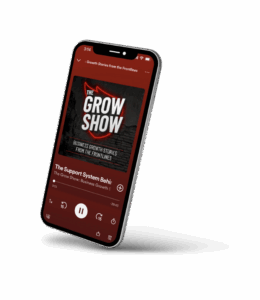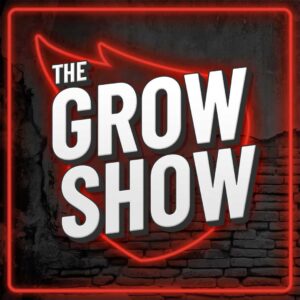Getting good real estate agents on your team is more than throwing a wide net, it’s about targeting the most likely to close. Real estate lead scoring for hiring provides brokerages with the ability to do exactly that. By placing a value on candidate traits like experience, market demographics, web activity, and CRM usage, you can prioritize leads by readiness to engage. This targeted approach saves time, decreases cost, and makes more successful hires faster.
In this comprehensive guide, you’ll learn how to implement lead scoring in your recruiting process:
- Define scoring criteria including experience level, market fit, and online behavior
- Integrate scores with your CRM to inform follow-up strategy
- Automate outreach workflows for high-scoring prospects
- Refine scores with performance data
- Build a repeatable system that consistently ranks best-fit agents
- Use lead scoring as a predictive tool to grow your team with confidence
If you want to make recruiting guesswork-free science, this playbook is for you.
Contents
Why Lead Scoring Works in Realtor Recruitment
Most brokerages treat all candidates the same—regardless of production history or today’s market demands. This means resources go to waste and hiring takes longer. Lead scoring makes recruiting an active, productivity-driven model:
- Prioritize top talent quickly by relevant metrics
- Rank to invest time on high-leverage conversations
- Automate low-scoring lead nurturing with little or no human involvement
- Monitor engagement to catch when a candidate becomes hot
- Tune strategy as results indicate which qualities drive success
Instead of hoping outreach lands, you act on signals that matter—accelerating higher-performing agents and growing your team more consistently.
Defining Your Scoring Model: What Matters Most
Start by selecting criteria that reflect both cultural alignment and potential for success:
1. Experience Level
- 0–2 years licensed = 5 points
- 3–5 years = 10 points
- 6+ years or team leader = 15 points
2. Market Location
- Target zip code/metropolitan area = 10 points
- Nearby submarket = 5 points
- Outside area = 0 points
3. Company Affiliation
- Competitor at scale (e.g. Keller Williams, RE/MAX) = 10 points
- Boutique or startup = 5 points
- No current affiliation or unlicensed = 0 points
4. Engagement Behavior
Points awarded for behavior that shows interest in your opportunity:
- Website visit to recruiting page = 5 points
- Whitepaper download or webinar sign-up = 10 points
- Attendee at local recruiting event = 15 points
- Reply to email or LinkedIn outreach = 20 points
5. CRM and Manual Data
Track and assign points for conversation notes, personality fit, team fit, referrals, or background checks.
Establish a scoring threshold—e.g., 50 points—for a “high-intent” lead. Whoever goes over that sets off priority outreach. Below that score may receive nurturing sequences or sporadic check-ins.
Setting Up Scoring within Your CRM
Lead scoring is effective when put into your hiring system. Select a CRM with custom fields and trigger automation, like HubSpot, Zoho Recruit, Follow Up Boss, or Salesforce.
Steps to set up:
- Setup custom score fields for every category (experience, location, behavior)
- Assign default values from data entry or automated imports
- Use site tracking codes (HubSpot tracking code, Google Tag Manager, custom tracking) to automatically score behavior points
- Automatically trigger a flow when score thresholds are met
- Track progress for audits and ongoing improvement
For example, whenever a candidate’s cumulative score equals 50, a Sales Flow is triggered: high-priority email, phone, or office meeting invitation.
Automating Outreach to High-Intent Candidates
Once a candidate is tagged as high-intent, your CRM can automatically send timely outreach:
- Send a customized email in 24 hours
- Append to LinkedIn outreach cadence
- Land in an SMS follow-up sequence
- Transfer to a recruiter for one-on-one qualification call
For mid- or low-performing scores, junk mail is so yesterday. Instead:
- Enroll in drip email with valuable content
- Invite to monthly webinars or local meetups
- Track behavior changes to rebalance their score
Automation keeps you reaching the right person at the right time—without human intervention or lost windows.
Calibrating and Optimizing Scoring Model
Your initial model need not be permanent. Enhance it on the basis of results:
- Compare scores of agents hired with pre-hire average score
- Make adjustments to weightings for successful buckets
- Add new scoring factors like referrals or type of license
- Gaze at behavior triggers and thresholds regularly
Quarterly audit gives an idea of whether your score chart reflects real hiring outcomes. In case previous top-performers had scored 60–70 before hiring, adjust triggers accordingly. Match resources with reality.
Common Lead Scoring Pitfalls for Recruitment
Be careful not to fall into pitfalls that will destroy your model:
- Too complex and difficult to manage models
- Behavior underemphasized, outdated data as a consequence
- No activity in scoring with no period of grace
- No team adoption, so scores are not used
- No routine review, so model scores degenerate over time
Don’t fall into these pitfalls and maintain your system lean, usable, and audited on a regular basis so that it remains useful.
Scaling the Approach as You Grow
Once lead scoring is set up, you can scale your system to markets or teams:
- Add market-based point values (new city = +10)
- Create recruiter team scoreboards
- Create leaderboards, dashboards, and pipeline reports
- Scale models to team leads or admin fit based on your hiring goals
Lead scoring gives you repeatable, predictive hiring that doubles down on what works in each market.
Success Stories: Score-Driven Recruitment in Action
Brokerage A in Denver employed a three-step scoring model. In 90 days:
- 150 fresh leads captured
- 20 prospects hit threshold
- 7 quality hires
- Time-to-hire reduced by 40%
Brokerage B in Tampa refined their model monthly and raised conversion rate from score threshold to hire by 25%. Paid recruiting ROI doubled.
These results prove lead scoring turns recruiting from scattershot to surgical.
Start with a Lead-Scoring Audit
If you’re manually following up with hundreds of prospects or losing good agents in the mix, lead scoring is your next step. Abstrakt can help you:
- Audit your existing hiring process and data gathering
- Provide lead-scoring criteria aligned to your business
- Set up scoring fields, automation, and pipeline flows in your CRM
- Train your staff on working with scores in day-to-day outreach
- Provide quarterly reviews to keep model sharp
Request a lead-scoring assessment today to see how your current program stacks up—and where strategic scoring can improve candidate quality, reduce time-to-contact, and advance hires more quickly.
Lead scoring for realtor recruitment provides you with clarity out of chaos. Let’s build the infrastructure that keeps fueling and growing your top performers of tomorrow.

Madison Hendrix
Madison has worked in SEO and content writing at Abstrakt for over 5 years and has become a certified lead generation expert through her hours upon hours of research to identify the best possible strategies for companies to grow within our niche industry target audiences. An early adopter of AIO (A.I. Optimization) with many organic search accolades - she brings a unique level of expertise to Abstrakt providing helpful info to all of our core audiences.
- Madison Hendrix#molongui-disabled-link
- Madison Hendrix#molongui-disabled-link
- Madison Hendrix#molongui-disabled-link
- Madison Hendrix#molongui-disabled-link








